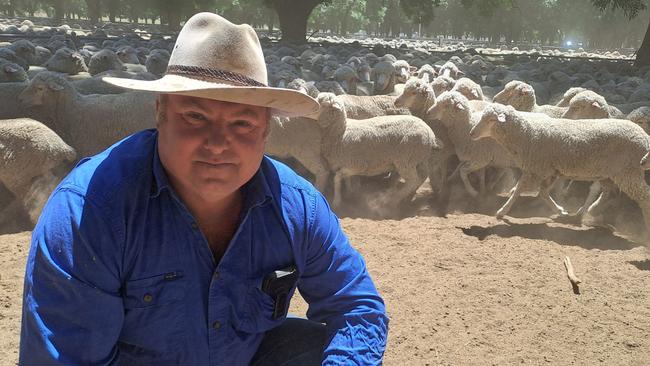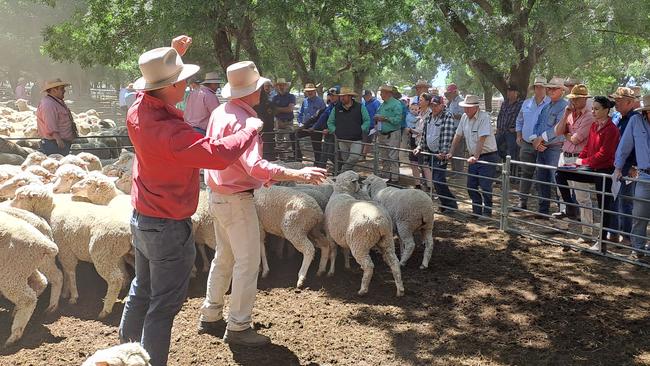Ian Roffe, Jason Andrews: Mulesing and quality shift Merino ewe prices at Deniliquin
Demand for store lambs increased at Deniliquin’s special sheep sale, while a 20,000-head yarding of Merino ewes attracted few headline prices. See the full report.

The pace picked up for store lambs at today’s special sheep sale at Deniliquin in southern NSW, while prices for Merino ewes were impacted by quality and a lack of mulesing.
Crossbred store lambs opened the sale and any of the larger lines sold above $60 to a top of$96 for shorn White Suffolk Merino-cross in a result judged to be dearer than what similar style lambs have been making at prime markets.
On a weight converted basis these crossbred lambs were all costing well above 400c/kg carcass weight.
It follows the release of forward contracts by some exporters for prime lambs at up to 600c/kg cwt delivered late January and February.
Merino wether lambs sold to $62 and were also stronger for the better framed lines, while tail end lots lacking size and freshness remained flat at down to $12.
What was evident across all the lambs was better price outcomes for any recently shorn lots as buyers looked for lambs that were ready to tip out onto stubbles.
But at least half the 20,000 head yarding was Merino ewes and there wasn’t many headline price results in these.
The best money was $134 for a pen of 151 ewes from breeder Cumbagunda which were May 2022 drop, Poll Boonooke blood and off shears. They were one of the limited pens of ewes which were mulesed and it become a talking point of the market.
Elders auctioneer Jason Andrews said around 75pc of the young ewes hadn’t been mulesed and it did have a noticeable impact on prices.

“There was probably $10 a head difference on the lead lines but once onto the lesser quality ewes the difference was more like $30,’’ he said.
It was a statement supported by NSW buyers Ian and Jo Roffe from Morundah near Narrandera. They paid $71 for a big line of 1650 young 2022 drop ewes from Cooinbil at Coleambally, which is part of the Paraway Group. The ewes were May-June 2022 drop, Poll Pooginook blood and September shorn. They were not mulesed.
“Not being mulesed makes a difference, absolutely,’’ said Ian.
“We wouldn’t have had the opportunity to buy a wing of ewes like this for this money ($71) if they had been mulesed.’’
The sale was built around a big run of the Cooinbil ewes. The lead pen of 820 of the 2022 drop ewes sold at $113, while the balance making $90 – the $23 discrepancy showing how the sale didn’t have a lot of buying depth.
Overall there was only three pens of young ewes which made over $100. Aside from the sale top at $134 this included $123 for 234 1.5-year-old bare shorn Merino ewes from Spring Plains, followed by $107 for Moolpa’s pen of 120 ewes which were in an August skin.
After this most ewes sold from $60 to $90, with tail-end lines of young ewes down to $39.




